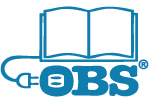Yesterday Mubarak’s government turned the Internet back on for Egypt; we are thankful that Egyptian voices can once more be heard around the world in real time as their political confrontations continue.
Censorship is not new in the country; it is especially distressing to see the Internet used as a political football now that we rely on it for global free exchange of information. We rely on its open architecture, its distributed pathways, the fact that it is collaboratively built and cooperatively run and not owned by any one corporate entity or government. We rely on it as our virtual, worldwide printing press. On this powerful shared infrastructure, we have built applications like the World Wide Web, Facebook, Skype and Twitter, that in many instances have supplanted traditional means of communication such as paper, TV, radio and telephones. Then suddenly a whole country goes dark and silent when a thug pulls the plug.
We at OBS got a whiff first-hand of this Egyptian government’s fear of the press, specifically in its digital form, when giving a publishing seminar at the Library of Alexandria in 2007: “Crossing Boundaries: Digital Publishing for the Future.” Our turn came to talk about Internet-based solutions, Web 2.0, all the free and open, boundary-less opportunities, and just as we were cranking up, even showing a photo of Vint Cerf … our microphones suddenly went dead, dinner was pushed up an hour, class let out, and we were taken on an unscheduled tour of the building, without students along.
Flash forward 4 years and imagine the elation, fear, adrenaline rush those publishers must be feeling now! And once again we outside of Egypt can witness, to some degree, over the Internet, what is happening there, and trust that the free flow of information will serve the cause of truth emerging.
The Internet is a distributed network without a single point of failure, built to survive a nuclear first strike. Had the Egyptian government opted to keep the Internet “unplugged” in their country, we can trust that the geeks among us would figure out how to build solar-powered servers and routers, and connect to the Internet via satellite from camelback, supplementing the Internet with an Undernet to ensure freedom of the digital press, a fundamental human right.
